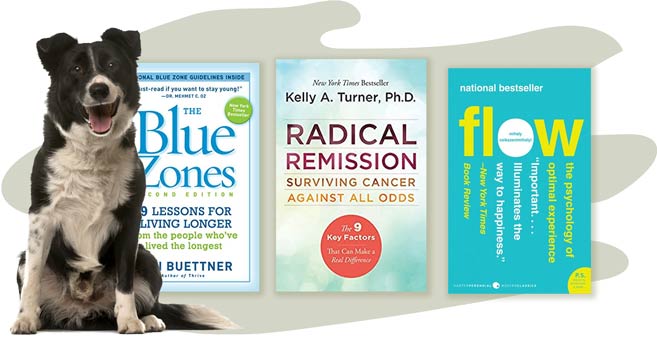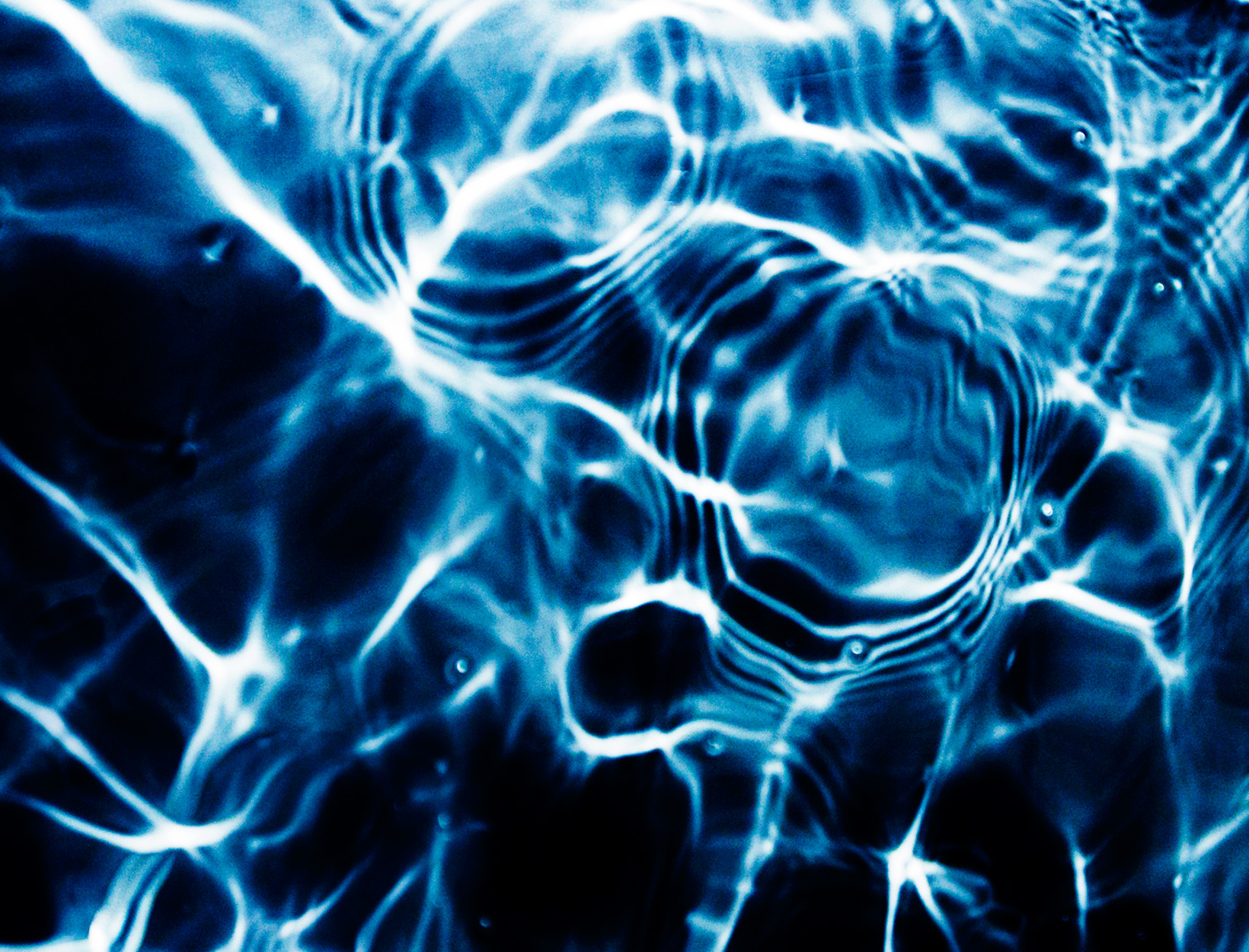- Booth
- 12 yo
- Male
- Neutered
- Short haired domestic cat
- 8 lbs
- Hiding most of the time; low energy, very little appetite, still very sweet.
- kibble at will and wet food once daily in the morning
- No vaccines since 2014
- I moved out of my house where I had been with my two kitties pretty much alone into a house where people are coming and going frequently along with two dogs. The kitties both hid often to avoid the chaos. This was 5 months ago.
Booth had some kidney issues twice before but with treatment seemed fine. The only symptoms then was him urinating outside his litter box.
Two weeks ago most of the chaos was gone during Christmas vacation and the kitties became more visible. This is when I noticed the changes in Booth. He lost a significant amount of weight and seemed lethargic. He was still eating and drinking water and urinating and pooping. This changed December 29th, when he was no longer eating and drinking water.
I got him an appointment to see a vet early the next morning. They took blood and did a UA. His creatine was high and his potassium was low. They gave him liquids and medicine along with an antibiotic in a subdural injection. He got a second treatment on Friday. The next step would be an ultrasound to check for pancreatitis or a tumor. I did not do the ultrasound. Nothing seemed to change and I was considering euthanasia when my daughter found your forum.
Currently, as of yesterday, Tuesday, January 4th, he is eating a little wet food, some bone broth and drinking water and urinating and up moving around. Today he is trying to poop but hasn’t yet. He has vomited a couple of times; a yellowish bile.
I have taken him off of his kibble food (and my other kitty) and have tried some good raw chicken, but he has not been interested. All he has eaten is some Sheba wet food. I would like to find him something that would be easy on his stomach, so any help with that would be appreciated. My hope now is to support him while his body heals from whatever this is. He is my sweet boy and has helped me get through a lot and I’m not willing to give up without a fight. - I don't think this the condition is better or worse from exercise, heat, cold, time of day, certain foods, emotional upset, being touched, excitement, etc?
Navigation
Install the app
How to install the app on iOS
Follow along with the video below to see how to install our site as a web app on your home screen.
Note: This feature may not be available in some browsers.
More options
-
Everyone can read this forum. To post on this forum, you must be a Community or VIP member. You can register here. If you are a member, to login use your email address for the username and the same password you use for the main site. If you have problems logging in to the forum, please email [email protected].
You are using an out of date browser. It may not display this or other websites correctly.
You should upgrade or use an alternative browser.
You should upgrade or use an alternative browser.
Possible kidney disease
- Thread starter VickieM
- Start date
-
- Tags
- @drchristina @drjeff dr sara
- Joined
- Feb 23, 2017
- Messages
- 6,329
Welcome to HA! Vickie, and thanks for making your first post! ? 
I'm sorry to hear about Booth's kidney issues.
Great work that you have taken him off kibble! Doing so was a wonderful and supportive action.
Supporting his body while it heals (and possibly even using curative actions like homeopathy, traditional Chinese Medicine/acupuncture, etc.) is really what it's all about.
The reason this is so important is because his body has the ability to heal with proper support (things that works with nature).
Here's a bit more about this:

 www.holisticactions.com
www.holisticactions.com
There's been a lot going on his life in the past 5 months, but these things didn't cause the kidney dis-ease (imbalance). They may have been triggers depending on his sensitivity to them.
So now let's focus on decreasing this sensitivity (susceptibility) by supporting his body:
A great way to start is by your reading through the Holistic Fun-Damentals course which you'll find in your HA! resource area.
It would be super helpful if you can read through this even before your 3pm chat today with Dr. Christina.
Feeding fresh food and using other actions that raise Booth's cellular energy and his kidney's ability to heal are key actions that you can start using today (like purring, petting and playing).

 www.holisticactions.com
www.holisticactions.com
Also, there are a bunch of kidney and bladder (this may be more of a UTI issue that's also affecting his kidneys) in your resource area.
The HA! wonderful web wizard @aruna can point you to them.
Have fun on your call today with @Dr. Christina!
I'm sorry to hear about Booth's kidney issues.
Great work that you have taken him off kibble! Doing so was a wonderful and supportive action.
Supporting his body while it heals (and possibly even using curative actions like homeopathy, traditional Chinese Medicine/acupuncture, etc.) is really what it's all about.
The reason this is so important is because his body has the ability to heal with proper support (things that works with nature).
Here's a bit more about this:

The Return to Wholeness and Homeostasis
As the legacy of Decartes comes to an end, the principle of dynamic equilibrium is being rediscovered and gaining prominence in veterinary medicine.
There's been a lot going on his life in the past 5 months, but these things didn't cause the kidney dis-ease (imbalance). They may have been triggers depending on his sensitivity to them.
So now let's focus on decreasing this sensitivity (susceptibility) by supporting his body:
A great way to start is by your reading through the Holistic Fun-Damentals course which you'll find in your HA! resource area.
It would be super helpful if you can read through this even before your 3pm chat today with Dr. Christina.
Feeding fresh food and using other actions that raise Booth's cellular energy and his kidney's ability to heal are key actions that you can start using today (like purring, petting and playing).

The Happiness Protocol in Your Pet's Life
At HA! we are committed to much more than helping pets become dis-ease free. We promote restoring and maintaining vitality, balance, energy, & happiness.
Also, there are a bunch of kidney and bladder (this may be more of a UTI issue that's also affecting his kidneys) in your resource area.
The HA! wonderful web wizard @aruna can point you to them.
Have fun on your call today with @Dr. Christina!
- Joined
- Dec 30, 2018
- Messages
- 326
Dear Vickie,
I am sure that you had a helpful chat with Dr. Christina. I am adding my input below, in case it is useful.
I find that a lot of people benefit from understanding the conventional approach to chronic kidney disease as well, as that way you are informed about the mechanics of the problem. Holistic medicine will aim to address the whole patient, but it is useful to know what the changes in your kitty's blood and urine picture mean. This is an excellent article:
A low protein diet is no longer recommended for most pets with kidney disease. The need for protein restriction with kidney disease is a common misconception among vets. When a dog or cat has elevated blood levels of kidney waste products (BUN, creatinine, phosphorus) restriction of protein and phosphorus intake in the diet will decrease these waste products in the blood, but this protein restriction decreases blood flow to the kidneys, which is counterproductive. The current recommendation by internal medicine specialists is to feed a moderate level of high quality protein.
There are other ways to improve kidney function, which is really our goal.
Dr. Sanderson published an overview of “Nutritional Management of Renal Disease” in the Jan/Feb 2014 issue of “Today’s Veterinary Practice” which cites numerous studies that illustrate the significant differences in prescription diets from maintenance diets. The findings of these studies are:
1 - Survival of kidney patients is enhanced by phosphorus restriction but not by protein restriction.
2 - Supplementation with the omega fatty acids, EPA and DHA, in the ratio found in fish oil, improves kidney function. Fish oil (ideally salmon oil) is given at a dose of 1,000 mg per 20 pounds of body weight.
3 - Supplementation of fish oil and antioxidants (moderate doses of natural vitamin E, carotenoids, and lutein) together slows progression of renal disease more than either does alone.
4 - Reduced dietary protein is not beneficial in most cases.
5 - Increased fermentable fiber (inulin, oligofructose) in the diet allows kidney wastes (urea) to be removed via intestinal processes, allowing a normal amount of protein to be fed. Fermentable fibers naturally occur in chicory and yucca and many prebiotic supplements.
The most important things that you can do for any animal with kidney disease are to maintain excellent hydration, provide proper nutrition with high quality ingredients, and avoid excessive intake of phosphorus.
One of the easiest phosphorus binders to use is niacinamide (not niacin) added to each meal. Cats and small dogs take 250 mg twice daily, medium and large dogs 500 mg twice daily.
It is essential to keep cats eating, even if you are not totally thrilled about the food quality. Provide the highest quality canned food Booth will readily eat, and offer small amounts of lightly cooked and raw food near it. It can take cats a while to habituate to new foods and realise the new food is not poison. Cats are naturally more selective eaters than dogs (dogs are scavengers); cats learn in kittenhood what foods are acceptable, and it can take a long time for them to decide that this new offered food is, indeed, food. That is why lightly cooking raw diets may be useful, as it makes the texture and smell more similar to canned food.
Most dogs and cats with chronic renal disease should receive omega fatty acids (salmon oil), antioxidant, and increased fermentable fiber as discussed above. Some animals may require supplementation with B vitamins or potassium. If an animal is unable to take in sufficient fluid to support kidney function, many owners learn how to give their pets fluids under the skin. These treatments don’t have to cost a tail and a leg, either. The Thriving Pets website has an excellent selection of products to assist in the treatment of kidney disease:
http://www.thrivingpets.com/index.php/chronic-conditions/kidney-renal-disease.html
They also have links to support groups and information on kidney disease and medications.
In addition to the conventional treatments for kidney disease, holistic medicine offers more options. A homeopathic vet can assess the case in its entirety and prescribe homeopathic medicines to improve overall body function, including kidney function. A vet with knowledge of acupuncture could treat points to stimulate better kidney function. There are also several Chinese herbal formulas, most notably Rehmannia Eight and Rehmannia Six, which are often used by TCM vets to improve kidney function. You have many options to help Booth!
Regards,
Dr. Sara
S.F. Chapman DVM, VetMFHom
I am sure that you had a helpful chat with Dr. Christina. I am adding my input below, in case it is useful.
I find that a lot of people benefit from understanding the conventional approach to chronic kidney disease as well, as that way you are informed about the mechanics of the problem. Holistic medicine will aim to address the whole patient, but it is useful to know what the changes in your kitty's blood and urine picture mean. This is an excellent article:
A low protein diet is no longer recommended for most pets with kidney disease. The need for protein restriction with kidney disease is a common misconception among vets. When a dog or cat has elevated blood levels of kidney waste products (BUN, creatinine, phosphorus) restriction of protein and phosphorus intake in the diet will decrease these waste products in the blood, but this protein restriction decreases blood flow to the kidneys, which is counterproductive. The current recommendation by internal medicine specialists is to feed a moderate level of high quality protein.
There are other ways to improve kidney function, which is really our goal.
Dr. Sanderson published an overview of “Nutritional Management of Renal Disease” in the Jan/Feb 2014 issue of “Today’s Veterinary Practice” which cites numerous studies that illustrate the significant differences in prescription diets from maintenance diets. The findings of these studies are:
1 - Survival of kidney patients is enhanced by phosphorus restriction but not by protein restriction.
2 - Supplementation with the omega fatty acids, EPA and DHA, in the ratio found in fish oil, improves kidney function. Fish oil (ideally salmon oil) is given at a dose of 1,000 mg per 20 pounds of body weight.
3 - Supplementation of fish oil and antioxidants (moderate doses of natural vitamin E, carotenoids, and lutein) together slows progression of renal disease more than either does alone.
4 - Reduced dietary protein is not beneficial in most cases.
5 - Increased fermentable fiber (inulin, oligofructose) in the diet allows kidney wastes (urea) to be removed via intestinal processes, allowing a normal amount of protein to be fed. Fermentable fibers naturally occur in chicory and yucca and many prebiotic supplements.
The most important things that you can do for any animal with kidney disease are to maintain excellent hydration, provide proper nutrition with high quality ingredients, and avoid excessive intake of phosphorus.
One of the easiest phosphorus binders to use is niacinamide (not niacin) added to each meal. Cats and small dogs take 250 mg twice daily, medium and large dogs 500 mg twice daily.
It is essential to keep cats eating, even if you are not totally thrilled about the food quality. Provide the highest quality canned food Booth will readily eat, and offer small amounts of lightly cooked and raw food near it. It can take cats a while to habituate to new foods and realise the new food is not poison. Cats are naturally more selective eaters than dogs (dogs are scavengers); cats learn in kittenhood what foods are acceptable, and it can take a long time for them to decide that this new offered food is, indeed, food. That is why lightly cooking raw diets may be useful, as it makes the texture and smell more similar to canned food.
Most dogs and cats with chronic renal disease should receive omega fatty acids (salmon oil), antioxidant, and increased fermentable fiber as discussed above. Some animals may require supplementation with B vitamins or potassium. If an animal is unable to take in sufficient fluid to support kidney function, many owners learn how to give their pets fluids under the skin. These treatments don’t have to cost a tail and a leg, either. The Thriving Pets website has an excellent selection of products to assist in the treatment of kidney disease:
http://www.thrivingpets.com/index.php/chronic-conditions/kidney-renal-disease.html
They also have links to support groups and information on kidney disease and medications.
In addition to the conventional treatments for kidney disease, holistic medicine offers more options. A homeopathic vet can assess the case in its entirety and prescribe homeopathic medicines to improve overall body function, including kidney function. A vet with knowledge of acupuncture could treat points to stimulate better kidney function. There are also several Chinese herbal formulas, most notably Rehmannia Eight and Rehmannia Six, which are often used by TCM vets to improve kidney function. You have many options to help Booth!
Regards,
Dr. Sara
S.F. Chapman DVM, VetMFHom
I could not find this product locally so I have ordered https://www.vetrxdirect.com/images/14867-aventi-kidney-complete-for-dogs-and-cats-otc.jpg for Booth as suggested by Dr. Jeff. However, I won't have it until Monday or Tuesday. Any other suggestions that I may be able to find locally and start right away?
Thanks
Thanks
- Joined
- Feb 23, 2017
- Messages
- 6,329
Hi Vickie-
Thanks for sharing this great product in your post Vickie!
What's going on, especially this weekend, that feels like you need to act right away?
In general chronic kidney dis-ease in kitty's is much more of a marathon than a sprint.
For example, the phosphorus binding and probiotics in Aventi are more of long term support.
However, with that being said, one thing to start this weekend is using "structured" gel water either in his food or as a water source (if he is still drinking).

 goop.com
goop.com
Thanks for sharing this great product in your post Vickie!
What's going on, especially this weekend, that feels like you need to act right away?
In general chronic kidney dis-ease in kitty's is much more of a marathon than a sprint.
For example, the phosphorus binding and probiotics in Aventi are more of long term support.
However, with that being said, one thing to start this weekend is using "structured" gel water either in his food or as a water source (if he is still drinking).

Gel Water For Increasing Hydration Support | Goop
Because gel water is transmitted through the body via our fascia, it can potentially deepen our understanding of both collagen and fascia.
Nothing specific has happened; he's just getting weaker and I want to get something started to help him.
So, I read the gel water article but am a little confused on how I make or find it. He is still drinking and eating a bit so I can definitely get him started.
Thanks, Vickie
So, I read the gel water article but am a little confused on how I make or find it. He is still drinking and eating a bit so I can definitely get him started.
Thanks, Vickie
- Joined
- Feb 23, 2017
- Messages
- 6,329
The fastest way is to see if he will drink a bone broth or to soak ground chia seeds for at least 15 minutes and use either the plain water or chia +water.
The easiest is to use a under sink system like this:

 springaqua.com
springaqua.com
The easiest is to use a under sink system like this:
Ecosystem In a Box - Spring Aqua
Booth drank some of the gel water but not much. I have fed him some food with a syringe and will do more water this way also.
My family has had good success with using homopathics and I was wondering if there are any homopaths in this group who might suggest something to try. All of our experience is for people.
Also, Booth has some drainage from one of his eyes and his nose has a black spot on it that I thought was from the treatments at the vet but it hasn't gone away. Any thoughts?
Thanks
My family has had good success with using homopathics and I was wondering if there are any homopaths in this group who might suggest something to try. All of our experience is for people.
Also, Booth has some drainage from one of his eyes and his nose has a black spot on it that I thought was from the treatments at the vet but it hasn't gone away. Any thoughts?
Thanks
Similar threads
- Replies
- 5
- Views
- 2K
- Replies
- 6
- Views
- 1K
- Replies
- 4
- Views
- 640
Share:
Share this page
Weekly Digest
Subscribe/Unsubscribe |

